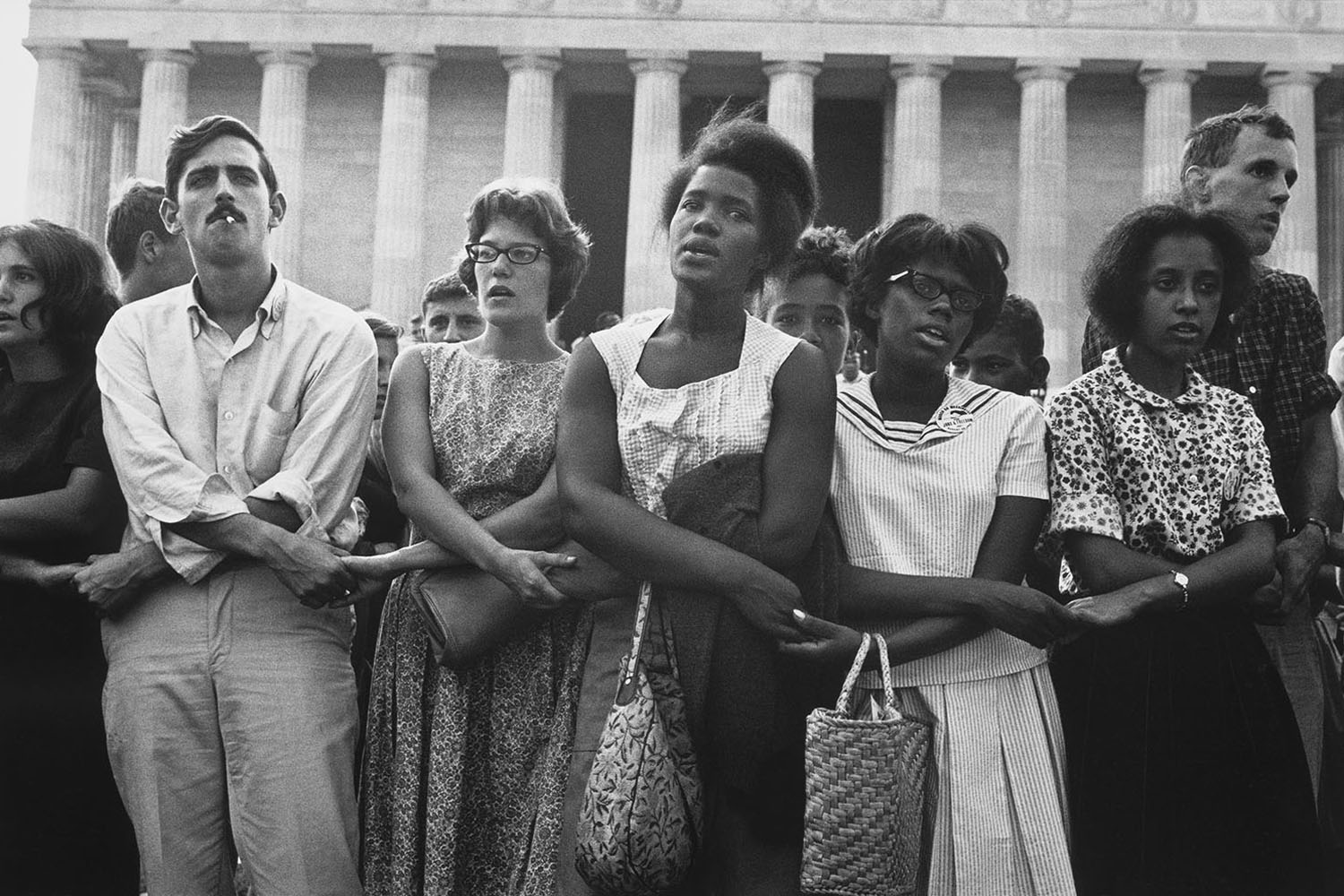
Like thousands of others I attended the March on Washington and, like them, thrilled to the size of the crowd and the oratory of Dr. Martin Luther King Jr. and the other sport speakers.
Among them, John Lewis, the youngest march speaker and the chairman of the Student Nonviolent Coordinating Committee (SNCC), was of major interest to me. I was SNCC’s communications director and served as liaison between SNCC and the news media.
At the march, each of the several sponsoring organizations contributed staff to the occasion, and I was volunteered with other press-relations people from the National Association for the Advancement of Colored People (NAACP), the Southern Christian Leadership Conference (SCLC), the National Urban League (NUL), the Brotherhood of Sleeping Car Porters, and the Congress of Racial Equality (CORE).
The senior organization in this coalition was the NAACP, founded in 1909. Their P.R. person was the venerable Henry Lee Moon, and, from my perspective, his responsibility seemed limited to issuing pronouncements. My organization, SNCC, was the most junior group. We had been organized only three years earlier, in 1960, and my job at the march was handing out Coca-Colas to the movie stars. I will always remember giving Sammy Davis Jr. a Coke and his responding by pointing his finger at me like a gun, and saying, “Thanks, kid!”
I clearly recall the controversy over John Lewis’s speech. The Kennedy Administration was concerned over his use of the words “revolution” and “masses” and his failure to endorse President Kennedy’s civil rights bill, which some in the civil rights leadership seemed to believe was the main purpose of the occasion. Archbishop Patrick O’Boyle, whom the Kennedys had asked to give the invocation, threatened not to do so unless Lewis censored his speech. Under pressure from A. Philip Randolph, the man who had conceptualized the march, Lewis agreed.
He cut these lines:
In good conscience, we cannot support wholeheartedly the administration’s civil rights bill, for it is too little and too late. . .
I want to know, which side is the federal government on?. . .
The revolution is a serious one. Mr. Kennedy is trying to take the revolution out of the streets and put it into the courts. Listen, Mr. Kennedy. Listen, Mr. Congressman. Listen, fellow citizens. The black masses are on the march for jobs and freedom, and we must say to the politicians that there won’t be a “cooling-off” period.
. . . We will march through the South, through the heart of Dixie, the way Sherman did. We shall pursue our own “scorched earth” policy and burn Jim Crow to the ground—nonviolently.
Of course, the SNCC people at the march, many of whom had gathered at the foot of the Lincoln Memorial, were irritated by this censorship. It confirmed our view that the entire event was a ploy by the Kennedy Administration to pass the President’s bill, which, as our chairman had wanted to say, was “too little and too late.”
Time changes many things. Looking back on the march today, I understand what a noble event it was. Most white Americans had never seen an occasion when black Americans had organized and executed an affair so large — involving so many people, with no untoward episodes, and with a message of tolerance and determination — as the 1963 March on Washington.
Most had never heard more than a quick sound bite from a black speaker, if they had heard anything at all, and on that day, they were treated to what is generally believed now to have been one of the greatest speeches ever made.
And black Americans saw, for one afternoon, at least, that their leadership figures, as different and diverse as they were, could be united in one cause — Leonard Freed’s photographs, in their black-and-white starkness, perfectly capture the nobility and majesty of the march.
I cherish my participation in it, however humble.
Julian Bond is a chairman emeritus of the NAACP and a professor at American University in Washington, D.C.
This is the Day: The March on Washington will be published in February by the J. Paul Getty Museum in Los Angeles. On February 5, 2013, The Library of Congress in Washington D.C. will host a panel discussion and booking signing. The event will be held at The Center for the Book at the Library of Congress, West Dining Room, Sixth Floor, Madison Building, 101 Independence Ave, S.E., Washington D.C.
More Must-Reads From TIME
- The 100 Most Influential People of 2024
- How Far Trump Would Go
- Scenes From Pro-Palestinian Encampments Across U.S. Universities
- Saving Seconds Is Better Than Hours
- Why Your Breakfast Should Start with a Vegetable
- 6 Compliments That Land Every Time
- Welcome to the Golden Age of Ryan Gosling
- Want Weekly Recs on What to Watch, Read, and More? Sign Up for Worth Your Time
Contact us at letters@time.com